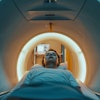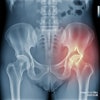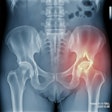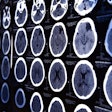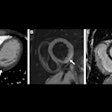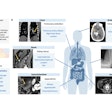Dear AuntMinnie Member,
CT is dominating the headlines again this week as summer draws to a close and the academic year starts.
Our top story for the week covers the big boom in recent years in CT thoracic and abdominal scans performed in the emergency department. Researchers from Emory University tracked CT use for these applications from 2011 to 2018, finding that usage more than doubled.
Also in our CT Community, check out a story on how radiologists can play a key role in identifying lung pathology associated with vaping.
PET for Alzheimer's
Another imaging technology that continues to draw attention is PET for Alzheimer's disease.
Researchers from Quebec found that activity in the brain from an amyloid-detecting PET radiopharmaceutical was an indication of early signs of Alzheimer's disease before symptoms developed. The finding could help clinicians determine the best time to administer pharmaceutical therapies for Alzheimer's.
Other recent stories in our Molecular Imaging Community include news on a radiotracer based on gallium-68 for predicting the risk of neuroendocrine tumors and an article on whether radiologist reports on PET/CT of patients with head and neck cancer are actually getting through to clinicians.
Get these stories and more in our Molecular Imaging Community.
Nonphysician providers take to imaging
One of the more controversial issues in medical imaging is the role of nonphysician providers -- roles such as nurse practitioners and physician assistants -- in submitting reimbursement claims for imaging procedures.
A new story in our Imaging Leaders Community describes how the number of claims submitted by nonphysician providers grew by 16.3% over the two-year study period. And a small number of such claims were even for image interpretation of studies like bone densitometry and fluoroscopy swallows.
In other news in the community, a new study found that one out of three leaders in radiology practices is experiencing signs of burnout, while another study indicates that research studies into diagnostic imaging tests are plagued by small patient sample sizes.
Also, a proposal that would have radically changed how Medicare and Medicaid pay for radiation therapy treatments has officially been shelved indefinitely -- much to the relief of the radiation oncology community.
